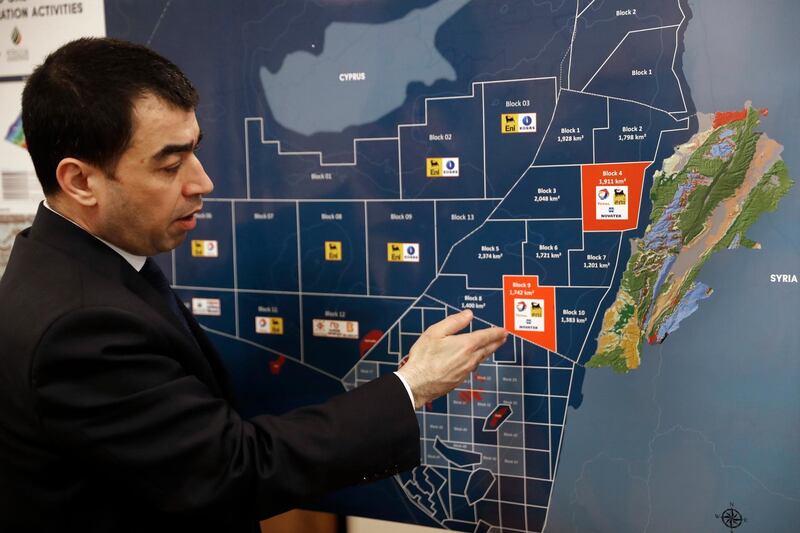Lebanon said a wall Israel intends to build at the border marks a violation of Lebanese sovereignty during a meeting of Lebanese and Israeli military officers chaired by UN peacekeepers on Monday.
Disagreement over the wall and Lebanon's plans to explore for offshore oil and gas in disputed maritime waters have elevated tensions between Israel and Lebanon, which is home to the powerful Iran-backed Shiite group Hezbollah.
The Israeli army has previously said the construction work is being done on sovereign Israeli territory.
The Lebanese government says the wall passes through territory that belongs to Lebanon but which is located on the Israeli side of the UN-designated Blue Line, which demarcated Israel's withdrawal from southern Lebanon in 2000.
The Israeli defence minister, addressing the dispute last week, accused Hezbollah of provocations, saying Israel had withdrawn to the recognised international border with Lebanon and was being challenged over a barrier in Israeli territory.
The sides met under the supervision of the UN peacekeeping force UNIFIL in their regular tripartite meeting at UN positions in the Ras Al Naqoura border area.
"The Lebanese side reviewed the matter of the wall which the Israeli enemy intends to build … confirming the position of the Lebanese government rejecting the construction of this wall as it violates Lebanese sovereignty," the Lebanese army said in a statement after Monday's meeting.
Hezbollah and Israel last fought a major conflict in 2006.
Read more: Hariri accuses Israel of threat over Lebanon's oil and gas
In a statement, UNIFIL said the meeting had received great attention "due to engineering works south of the Blue Line previously announced by the Israeli side". UNIFIL force commander Major General Beary noted there had been a "period of relative calm" since the last tripartite meeting.
"However, there has been a great deal of activity along the Blue Line. I would like to acknowledge the restraint exercised by both parties in decreasing tension and maintaining stability. No one wants to return to a period of escalating tensions and a breach of the cessation of hostilities," he said.
In the meeting, the Lebanese side also rejected recent Israeli comments about Lebanon's offshore energy exploration, the army statement said.
On Wednesday, Israeli defence minister Avigdor Lieberman described as "very provocative" Lebanon's first offshore oil and gas exploration tender and said it would be a mistake for international firms to participate.
Lebanon has an unresolved maritime border dispute with Israel over a triangular area of sea of around 860 square kilometres that extends along the edge of three of five blocks Lebanon put to tender early last year.
Lebanon in December approved a bid by a consortium of France's Total, Italy's Eni and Russia's Novatek for two blocks. One of the awarded blocks, Block 9, borders Israeli waters.
"The block lies entirely within Lebanon's territorial and economic waters," the army statement said.





